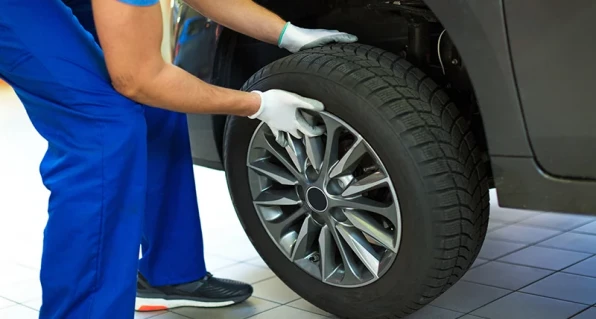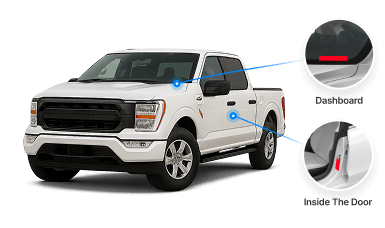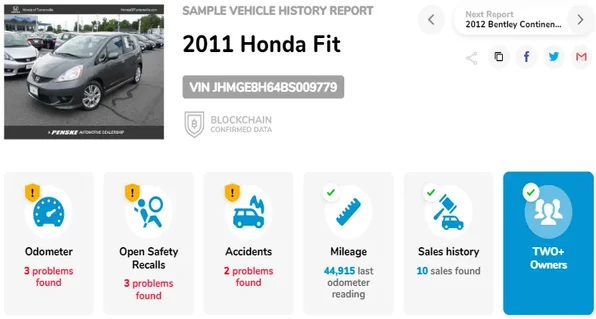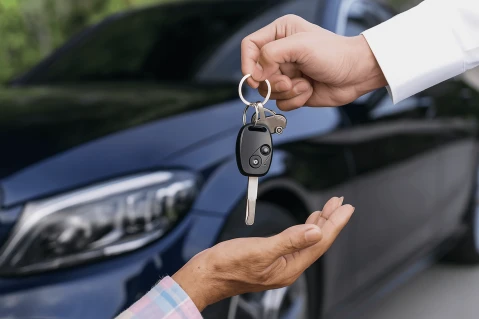
When Should I Change My Car Tires
In this article, we'll provide you with all the information you need to precis...
Enter any Florida license plate number and get the VIN, title status, accident history, and market value in under 30 seconds
Looking for the VIN?
Here is there you’ll find it:

A Florida license plate lookup helps perform a legal, DPPA-compliant plate-to-VIN search on license plates in Florida, resolving the VIN and checking NMVTIS/title brands, accidents, recalls, etc.
Plate-to-VIN Match
EpicVIN instantly resolves a Florida plate to the vehicle’s 17-character vehicle identification number - no manual VIN decoding required.
Instant Check
We cross-check NMVTIS and trusted partner records for Florida vehicles, surfacing title brands, registration events, theft/salvage activity, and inspection history.
Vehicle History Report
Get a quick snapshot for Florida vehicles: accidents/damage, title status, mileage readings (incl. inspection results where available), and open recalls—without exposing personal owner details.
Expect to see the VIN, basic vehicle specs, and any reported incidents (e.g., accidents, salvage titles, or recalls). Private owner details are not included, keeping the process legal and privacy-safe.
Reports don’t include personal identifiers like the owner’s name or address, live ALPR (automatic license plate recognition) location, driver’s license, or insurance numbers. The DPPA and applicable state privacy law restrict access; reports are informational vehicle tools and not for FCRA-regulated (Fair Credit Reporting Act) credit, employment, or tenant decisions.
A Florida license plate lookup uses the tag number to query public records. Enter the plate and select Florida; EpicVIN resolves the VIN and compiles the record from NMVTIS and partner sources (including inspection history where available).
Works with standard, personalized, and legacy Florida plates. Temporary tags may not return a VIN until registered.
Year 1986
Make CHEVROLET
Model El Camino
Fuel Type Gasoline
Engine 5L V-Shaped 4BBL
Made in MEXICO
| Indicator | Florida | Potential Risk |
|---|---|---|
| Accidents/Damage | ≈395,175 accidents (2023) | Hidden damage, reduced safety, and resale value. |
| Theft | High theft incidence (46,213 cases in 2023) | Elevated theft risk; possible loss/confiscation and insurance complications. |
| Salvage/Rebuilt Titles | No official statewide statistics | Serious prior damage; residual defects and safety concerns. |
| Odometer (mileage) | No official statewide statistics | Mileage fraud risk; overpayment and unexpected repairs. |
| Open Recalls | No official statewide statistics | Unresolved safety defects; increased accident risk until fixed. |
| Emissions/Smog Patterns | No statewide emissions inspection program (terminated on July 1, 2000, and repealed Chapter 325, F.S., in 2001) | Engine/emissions issues; costly repairs and registration delays. |
The Florida DMV (Florida Department of Highway Safety and Motor Vehicles) can release a vehicle record via designated forms or online for a valid reason. However, the process is slower and focused on registration details. EpicVIN provides an instant, multi-source free vin check report (NMVTIS title/brand/lien). It's useful for pre-purchase checks.
Prefer to double-check? Use NHTSA’s recall lookup to corroborate important findings.Alex Black, CMO & auto expert, EpicVIN
In Florida, license plate costs are part of the total vehicle registration fee. Key resources are on the official FLHSMV License Plates & Registration page (https://www.flhsmv.gov/motor-vehicles-tags-titles/license-plates-registration/) and FLHSMV’s Fees page (https://www.flhsmv.gov/fees/).
Are two plates required in FL? No. Florida issues a single rear plate for most motor vehicles; motorcycles also display a rear plate.
Fines: Driving without a valid license plate or current registration can lead to citations and fines; penalties vary by county and violation across the Sunshine State.
| Plate type/Action | One-time plate fee | Where to obtain | Form/official link |
|---|---|---|---|
| Standard passenger plates (new issue) | $28.00 original/replacement plate fee | County Tax Collector/License Plate Agency | FLHSMV — Fees |
| Vanity (personalized) plates (order/issuance) | $28.00 if a new plate is produced (plus $15 annual personalization) | Tax Collector/License Plate Agency | Personalized Plates — FLHSMV |
| Classic/Antique background (non-vanity) | $28.00 plate issuance (background subject to program rules) | Tax Collector/License Plate Agency | Specialty/Antique Plates Brochure (PDF) |
| Specialty background plates (non-vanity) | $28.00 issuance; annual use fees vary by plate | Tax Collector/License Plate Agency | RS-22 Specialty Plates Procedure (PDF) |
| Replacement plates (lost/damaged) | $28.00 per plate/decal replacement plus service charges | Tax Collector/License Plate Agency | RS-06 Replacement Plate Procedure (PDF) |
| Temporary plate (non-commercial) | $2.00 state fee for dealer-issued ETR; durations vary (10/30/60/90 days) | Dealer/Tax Collector/License Plate Agency | RS-31 Temporary Tag Procedure (PDF) |
- Municipal components and registration taxes may apply; amounts above exclude annual registration and taxes.
- Many specialty programs rely on annual contributions; those are not listed in this one-time fee table—see the linked resources.
- Fees verified: Oct 2025.
EpicVIN complies with the DPPA and Florida law; we do not sell vehicle owners’ personal data (only de-identified vehicle data). We do not provide the owner's name, address, or contact information—this is prohibited.
Florida
BS43LF
2013 TOYOTA CAMRY
Florida
RCED93
2024 KIA SELTOS
Florida
BW01BJ
2024 VOLKSWAGEN GOLF R
Florida
VCJ431
2004 FORD F-250
Florida
RAVQ58
2024 MITSUBISHI MIRAGE
Florida
UB6CT
2023 TESLA MODEL Y
Florida
KI966F
2024 DODGE CHARGER
Florida
DI37VA
2025 HONDA ACCORD
Florida
HARM65
2001 CHEVROLET SILVERADO
Double-check the entry (0 vs O, I vs 1) and make sure Florida is selected. Very new or temporary tag(s) may not be linked yet—try later or use the VIN. You can contact our support via chat or email.
Temporary tag(s) and freshly issued license plates often aren’t in statewide databases yet. Ask the seller for the VIN or retry in a few days.
Yes. We don’t notify anyone about your lookup, and we don’t display owner PII. Results focus on vehicle data, not personal identity.
There isn't a statewide emissions inspection program. It was terminated on July 1, 2000, and repealed Chapter 325, F.S., in 2001.
Motor vehicle dealers usually issue 30-day temp tags; permanent registration often posts after title work is processed by the county office, with a completion date shown on receipts.
No. DPPA and Florida privacy rules prohibit releasing personal owner details; searches focus on vehicle history and safety indicators, and not on identifying a fictitious person or any individual.
Title brands can carry across states; check NMVTIS indicators and ask the seller to provide the current title file and bill of sale.
Compare service receipts and auction photos; investigate any rollback flags and get a pre-purchase inspection to verify condition before you purchase.
Plate configurations can be reused; match the VIN, model year, county on the registration, and any record numbers before proceeding to verify vehicle ownership and service history.
Discover expert tips, news and advice on buying and maintaining used vehicles

In this article, we'll provide you with all the information you need to precis...

In our article, you will learn how to read our vehicle history reports.

Wondering how many people have owned your car before you? Here's how to find o...